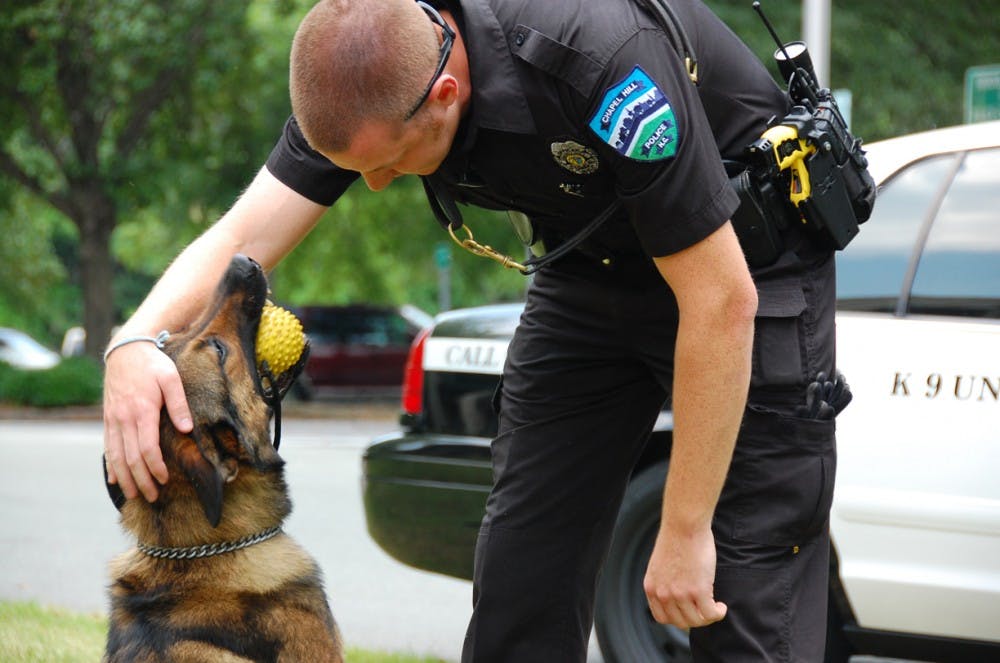Due to a reporting error, a previous version of this story incorrectly described police dogs that have not had previous training. They are called ‘green’ dogs. The story has been changed. The Daily Tar Heel apologizes for the error.
The newest member of the Chapel Hill Police Department flew more than 4,000 miles to join the force.
He also has four legs.
Jax, a German Shepherd-Belgian Malinois mix, graduated from training on May 27 and has been working with his handler Officer Stephen Shaw every day since he arrived from Hungary.
Jax is what the police department calls a “green” dog, meaning he was completely untrained upon his arrival.
Shaw said he speaks in Hungarian when he works with Jax to make him feel comfortable in his new surroundings. The language difference also ensures that not just anyone can command the dog.
“What we started off with and spent about three to four weeks working on was simple obedience,” Shaw said. “Once the dog has a good grasp on the simpler stuff, we move on to the drug work.”
Jax and the three other dogs working for the department detect narcotics like marijuana, cocaine, meth and heroin.
“Our dogs’ job description ranges from drug sniffing to narcotics scans to missing persons searches, and a wide variety of other police aiding,” said Capt. Cornell Lamb of the Carrboro Police Department.



